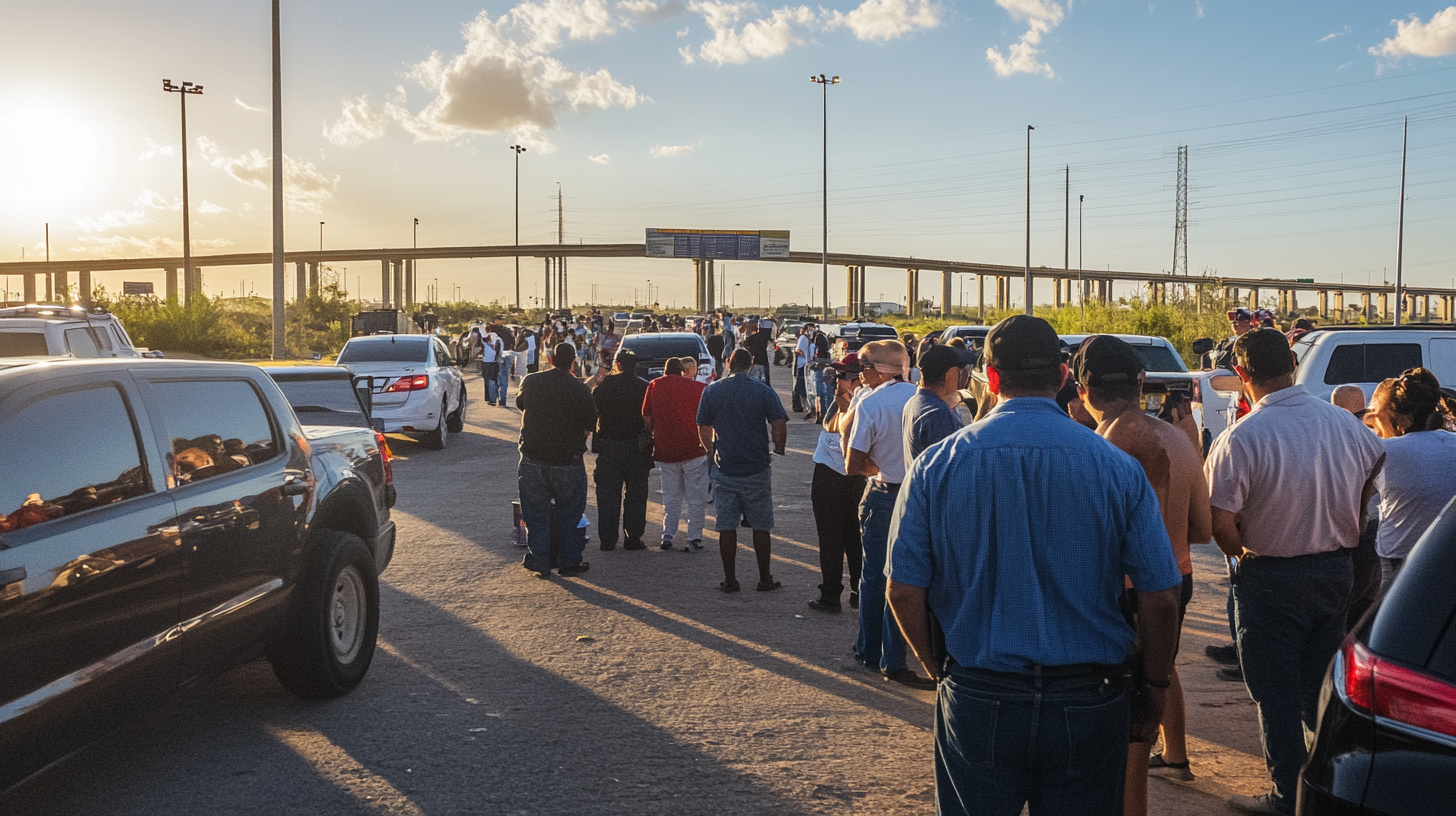Heightened Security: Mexican Soldiers Increase Vehicle Searches at Rio Grande Valley Border Crossings
Amid escalating concerns about drug trafficking and border security, Mexican soldiers have amplified vehicle searches at key ports of entry along the U.S.-Mexico border, with a sharpened focus on the Gateway International Bridge in Brownsville. This move is part of a recent bilateral agreement with the United States aimed at enhancing border security and crackdowns on illegal activities.
Increased Border Security Measures
The increased security measures, which began last Friday, encompass a robust collaboration between the Mexican National Guard and customs agents, specifically concentrating on vehicles departing Mexico into the U.S. The initiative, recognized as Operation Northern Border, involves meticulous inspections facilitated by advanced technology such as devices for tire checks and cameras to examine vehicle interiors.
Oscar Vargas Luna, a Mexican customs agent stationed at the Gateway International Bridge, elaborated on the operation’s goals: “These searches are targeted to curb drug smuggling into the U.S., focusing on substances like fentanyl, cocaine, and marijuana.” This initiative comes at a crucial time when cross-border security is a hot-button topic, extensively impacting both sides of the border.
Local Impact and Community Reactions
For Rio Grande Valley (RGV) residents, these augmented security measures could evoke varied responses. On one hand, the intensified inspections promise a tougher stance against drug smuggling, potentially reducing the penetration of dangerous substances into local communities. Jaime Rodriguez, a Brownsville resident, expressed support for this initiative: “Security should always be a priority, especially for communities like ours that are so close to the border.”
Conversely, there’s a palpable apprehension regarding travel delays and economic implications at a border known for vibrant trade and daily transits. For frequent cross-border commuters, including local business people and families divided by the international divide, the increased security could mean longer wait times and disruptions. “While I understand the safety reasons, the wait at the bridge is an added burden especially for those of us who cross daily for work,” commented Maria Juarez, who frequently commutes from Brownsville to Matamoros.
Efforts Aligned with Broader Security Strategy
These stepped-up inspections are aligned with Mexican President’s commitment to infuse 10,000 National Guard troops along the northern border, including nearly 2,000 in Tamaulipas, as part of a broad security strategy to combat the illegal flow of drugs and migrants into the U.S. While Mexico pursues these endeavors, U.S. Customs and Border Protection (CBP) continues to maintain active communications with their Mexican counterparts, despite directing specific security operation inquiries back to Mexico.
Contextualizing Local Events
This heightened security setting at the RGV border interfaces with concurrent events of local concern. The FBI is currently investigating a shooting involving a Border Patrol agent in Boca Chica, a matter that underscores ongoing law enforcement activities in the area. Meanwhile, the Occupational Safety and Health Administration (OSHA) is looking into a construction fatality in Brownsville, and there are active discussions about potential transportation challenges related to State Highway 4 with the proposed incorporation of Starbase in eastern Brownsville. Each of these events ties back to the community’s multifaceted approach to safety, development, and daily life.
Prospective Consequences and Regional Perspectives
The real question lingers: How will these developments affect both the immediate everyday experiences and the broader economic fabric of the RGV? Industry experts suggest that while short-term disruptions might occur, the long-term safety benefits could outweigh immediate inconveniences. Economically, a more secure border could foster increased confidence in cross-border commerce, potentially spearheading growth and prosperity on both sides of the border.
Still, it’s crucial to retain balance amid these security operations by considering human elements—particularly for those with familial and business ties across the border. Public dialogues, community outreach efforts, and sustained communications from officials are pivotal in navigating these complex landscapes without alienating the populations they intend to protect.
Resources and Contacts for RGV Residents
RGV residents who need further clarification or assistance can tap into several resources. The Mexican consulate in Brownsville offers informational support about trans-border travel and customs regulations, while local community groups provide advocacy and insights into coping with these changes. Residents can also reach out to the local Border Patrol office for more information on how these customs operations might affect personal travel.
In conclusion, the increased vehicle searches at RGV ports of entry underscore an evolving narrative of security cooperation and its local implications. Valley residents remain a core part of this dynamic, their safety, and connectivity providing a central tenet as cross-border policy adaptations strive to balance vigilance and accessibility.







